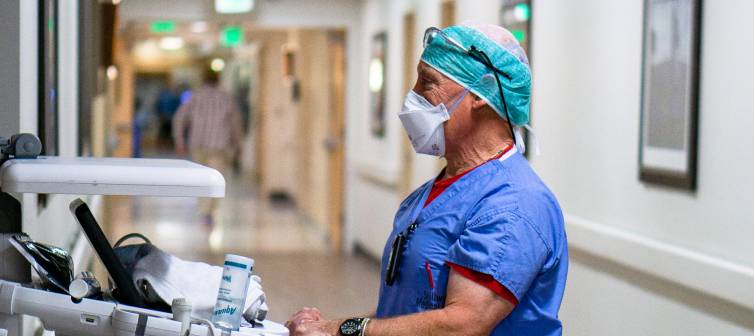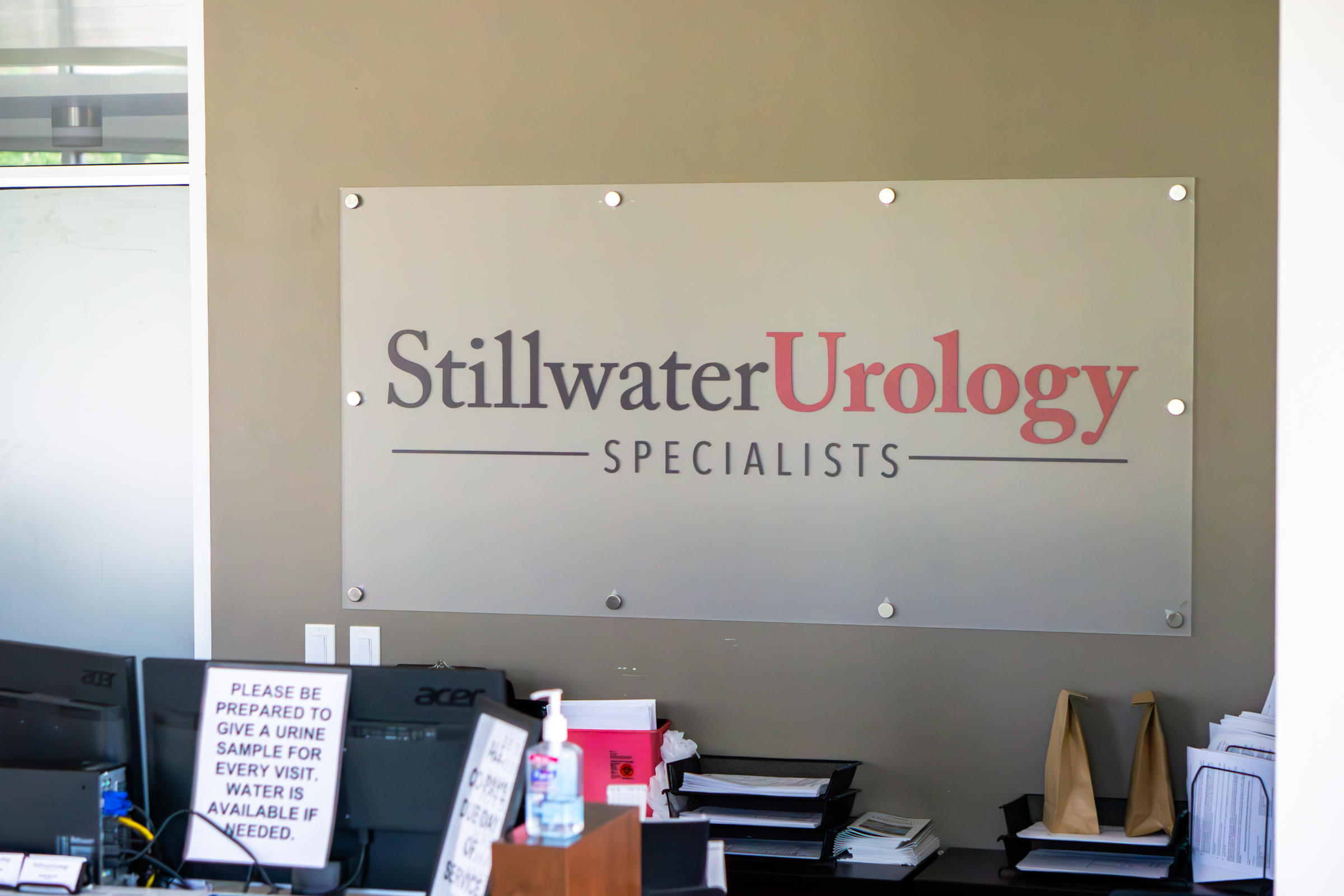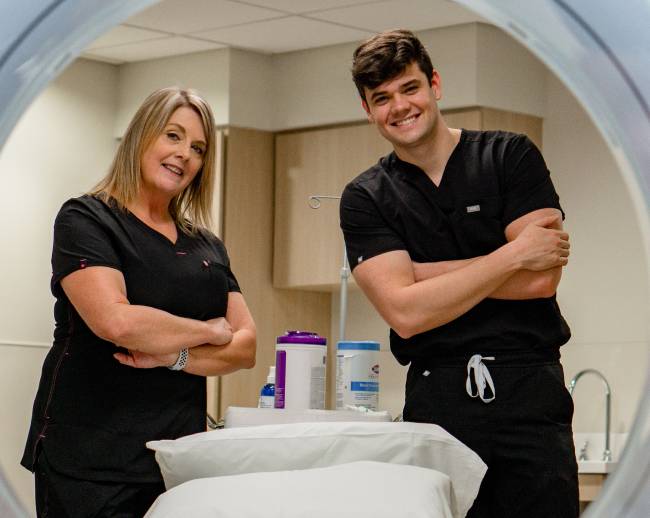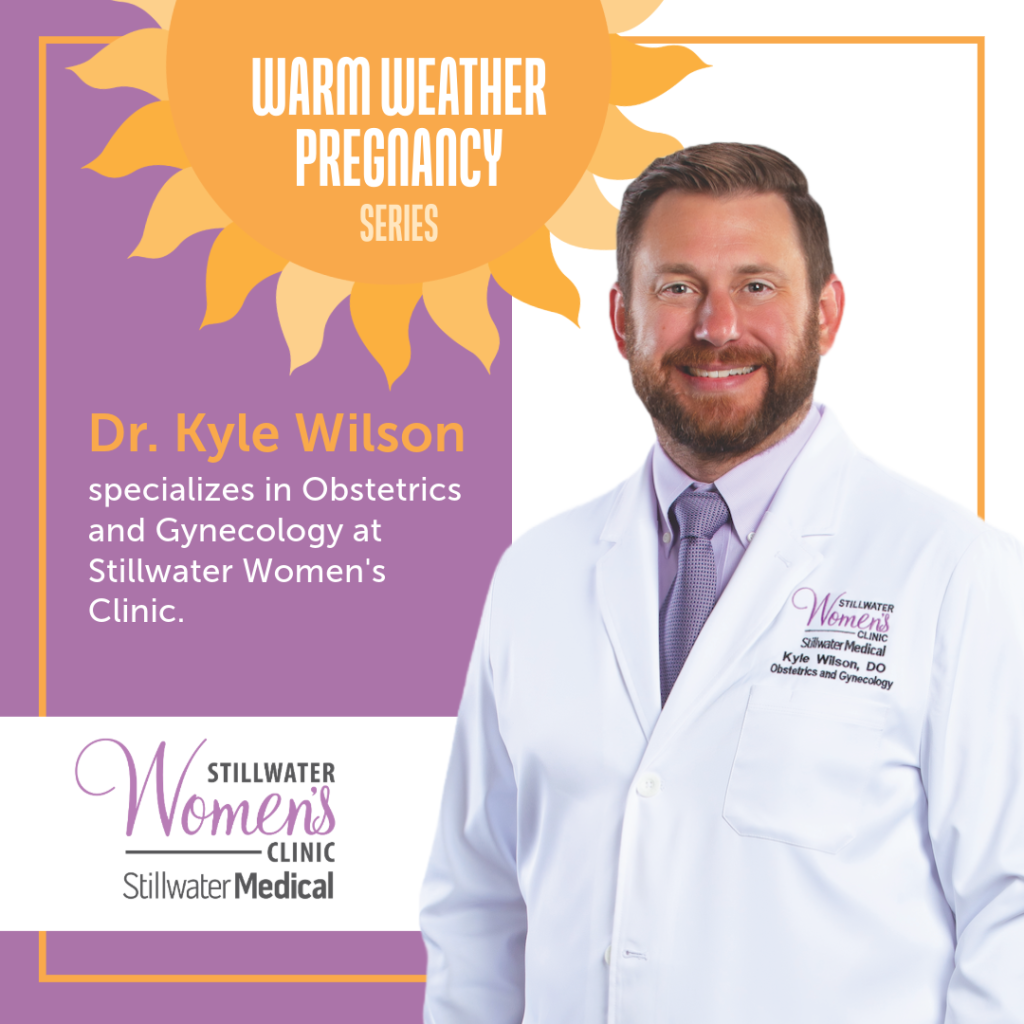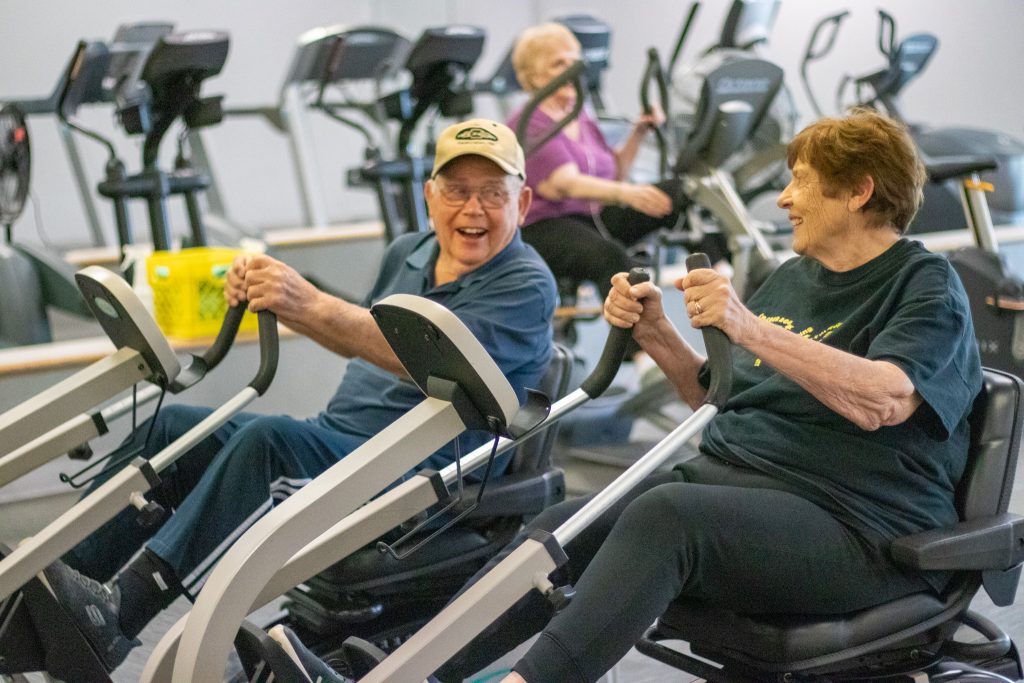
Across the globe, April is recognized as Parkinson’s Awareness Month, a time dedicated to raising awareness, promoting research and supporting the 10 million individuals living with Parkinson’s disease. Parkinson’s disease is the second-most common neurodegenerative disease, affecting an individual’s movement, mental well-being, speech and sleep. Currently, there is no known cure, but various treatment options exist to improve a patient’s quality of life.
At Total Health Rehab, this is the goal.
“The general thought behind treatment is to help patients do life larger,” Daniel Barnes, physical therapist at Total Health said. “Parkinson’s is a disease that can somewhat shrink a patient’s movements, and therefore social circle, so I tell people we are trying to keep that circle big.”
Barnes explains this is done through a variety of treatment options. He has a special certification through LSVT BIG, which is an intensive, amplitude-focused therapy for individuals with Parkinson’s disease and other neurological conditions. Treatment entails a total of 17 visits spanning four weeks. The first appointment consists of an evaluation.
“In Parkinson’s, you see the tremor or the shuffling of feet when they’re walking, so we’re always looking for those telltale signs,” Barnes said.
He will also conduct a balance test, as Parkinson’s patients can often have a tilted forward appearance. Barnes also simulates a patient’s daily activities to understand what deficits occur and prohibit a patient from everyday functions.
After evaluation, if treatment is needed, the typical route involves LSVT BIG, which aims to boost amplitude through larger movements.
“It’s a treatment to help ramp-up the nervous system and disrupt a few of the issues that patients with Parkinson’s can develop,” Barnes said.
Ultimately, the end goal of treatment is for higher quality of life and for patients to return to their beloved hobbies and social life. But Total Health also offers a unique opportunity for patients to form a new circle of comradeship.
Pedaling for Parkinson’s is a class offered twice a week, Monday and Wednesday, from 12-1 p.m.
The group is composed solely of people with Parkinson’s. After peddling on recumbent bikes, participants take part in different games to work on cognition. The time together also offers support.
“Providers can see the deficits and we somewhat understand them, but we don’t get to understand that from their aspect,” Barnes said. “We don’t get to feel what they do every day, so it’s really nice for them to have that social blanket around them to lean on.”
In a conjoined effort, Total Health also offers screenings and treatments for another large component of Parkinson’s- deteriorating speech.
“For screenings we’ll look at speech intelligibility and vocal loudness, because these are the two main things we see in individuals with Parkinson’s that can indicate change in their speech function, and then their swallowing function,” said Kelsey LeValley, speech-language pathologist at Total Health.
The screening is crucial in utilizing treatment quickly, so muscle strength can be maintained.
“We usually start seeing speech characteristics change before the swallowing changes, as these two movements use the same muscles,” LeValley said. “But we want to make sure that the swallowing muscles stay strong for their lifespan, so we don’t see any deficits and start having problems.”
Treatment focuses on returning patients back to daily life habits with confidence. With reduced strength for swallowing functions, comes the fear of choking. This often prohibits patients from joining social events centered around food.
Yet, through treatment, swallowing can become an area of certainty again.
“Patients will tell me, ‘I went to dinner, and this was the first time in many months that I didn’t feel I had to worry about choking,’” LeValley said. “It’s a very functional change and does make a huge difference in people’s lives.”
If you or a loved one may be struggling with symptoms of Parkinson’s disease, or issues speaking or swallowing, Total Health is making these screenings available to the public. Walk-in screenings will be May 7 from 11 a.m.- 2 p.m. at Total Health Rehab located at 1810 N. Perkins Road in Stillwater free of charge.
